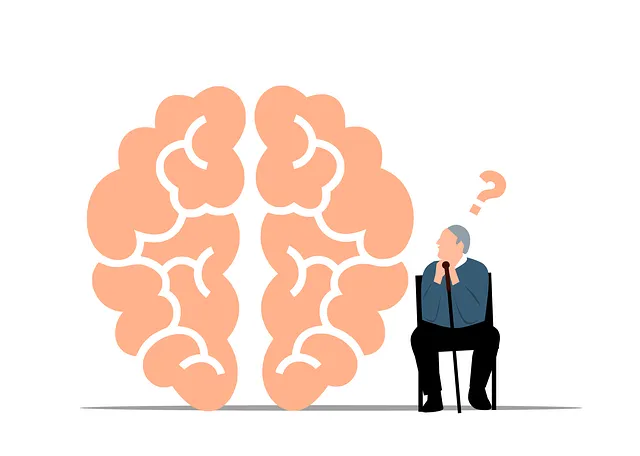The Kaiser Permanente behavioral health center in Westminster offers a holistic approach to emotion regulation, focusing on mindfulness, thought awareness, and relaxation practices. Their programs teach individuals to manage stress, prevent burnout, and boost self-esteem through cognitive strategies and practical tools. By promoting emotional intelligence, the center empowers patients to respond mindfully to emotions, alleviate mental illness symptoms, and improve overall mental well-being, with a commitment to long-term emotional resilience and cultural sensitivity.
“Discover powerful emotion regulation techniques at the Kaiser Permanente Behavioral Health Center in Westminster, where emotional intelligence is key. This comprehensive guide explores various strategies, from cognitive strategies like mindfulness and thought awareness to stress management practices. Learn how to transform emotional responses and build resilience for daily living. By mastering these skills, you can navigate life’s challenges with greater ease and well-being, a service uniquely offered at our Westminster center.”
- Understanding Emotion Regulation: Unlocking Emotional Intelligence at Kaiser Permanente Behavioral Health Center Westminster
- The Role of Cognitive Strategies: Teaching Mindfulness and Thought Awareness
- Techniques for Managing Stress: Relaxation Practices and Their Benefits
- Emotional Response Transformation: From Reacting to Responding
- Building Resilience: Long-term Emotion Regulation Skills for Daily Living
Understanding Emotion Regulation: Unlocking Emotional Intelligence at Kaiser Permanente Behavioral Health Center Westminster

At Kaiser Permanente Behavioral Health Center Westminster, understanding emotion regulation is seen as a key component of emotional intelligence development. Through various techniques taught by our experienced professionals, individuals learn to manage and navigate their emotions effectively. This holistic approach not only helps in stress management but also plays a pivotal role in burnout prevention, enabling people to lead more balanced and fulfilling lives.
The center’s programs are designed to unlock the potential for self-esteem improvement by providing practical tools and strategies. By mastering emotion regulation, individuals gain a deeper understanding of their emotional responses, allowing them to make conscious decisions about how they react in different situations. This, in turn, fosters resilience and promotes overall well-being, making it a valuable asset for anyone seeking to enhance their mental health and emotional agility.
The Role of Cognitive Strategies: Teaching Mindfulness and Thought Awareness

At the Kaiser Permanente behavioral health center Westminster, cognitive strategies play a pivotal role in emotion regulation techniques teaching. By fostering mindfulness and thought awareness, individuals learn to observe their thoughts and emotions without judgment, enabling them to make more balanced responses rather than reacting impulsively. This approach is particularly effective in burnout prevention, as it helps people develop a deeper understanding of their mental processes, allowing them to manage stress more effectively.
Moreover, teaching mindfulness and thought awareness can significantly contribute to depression prevention and confidence boosting. By cultivating present-moment awareness, individuals can reduce rumination on past experiences or worry about the future, which are common triggers for depressive episodes. Additionally, this practice enhances self-confidence by fostering a sense of control over one’s emotional reactions, thereby promoting overall well-being and resilience.
Techniques for Managing Stress: Relaxation Practices and Their Benefits

Stress management is a cornerstone of emotional regulation, and relaxation practices offer powerful tools to achieve this. At the Kaiser Permanente behavioral health center Westminster, professionals emphasize techniques like deep breathing exercises, progressive muscle relaxation, and mindfulness meditation. These methods not only help individuals recognize and accept their emotions but also provide effective coping strategies for stressful situations.
Regular engagement in relaxation practices can significantly reduce stress levels, enhance emotional resilience, and promote overall mental well-being. By incorporating these techniques into daily routines, individuals can better navigate life’s challenges, as supported by both clinical research and real-world applications, even in the context of a comprehensive Mental Health Policy Analysis and Advocacy framework. This holistic approach to emotional healing processes ensures that stress management becomes an integral part of an individual’s journey towards improved mental health, similar to conducting a thorough Risk Assessment for Mental Health Professionals to tailor interventions effectively.
Emotional Response Transformation: From Reacting to Responding

At the Kaiser Permanente behavioral health center Westminster, a significant shift in approach is observed when teaching emotion regulation techniques. The traditional method of reacting to emotions is replaced by a more proactive strategy: responding to them. This transformation encourages individuals to move from impulsive reactions to mindful actions, fostering emotional well-being promotion techniques that are powerful and transformative.
By learning to transform their emotional responses, individuals can significantly reduce the impact of stress and even alleviate symptoms associated with mental illness stigma reduction efforts. This shift involves recognizing triggers, understanding emotions, and employing effective coping mechanisms. Through these practices, one gains a sense of control, enhancing their overall ability to navigate life’s challenges, and ultimately, reducing stress through various stress reduction methods.
Building Resilience: Long-term Emotion Regulation Skills for Daily Living

At the Kaiser Permanente behavioral health center Westminster, professionals emphasize building resilience through long-term emotion regulation skills. This approach equips individuals with robust coping mechanisms to navigate daily challenges and stress. By teaching effective mood management techniques and fostering cultural sensitivity in mental healthcare practice, the center ensures that patients gain not just short-term relief but also sustainable tools for emotional well-being.
Through tailored programs, individuals learn to identify and understand their emotions, develop healthy strategies for expression, and cultivate resilience. This holistic approach to coping skills development enables individuals to adapt more effectively to life’s ups and downs, enhancing their overall mental health and quality of life.
The Kaiser Permanente Behavioral Health Center Westminster has pioneered an inclusive approach to emotion regulation teaching, empowering individuals with valuable emotional intelligence skills. By delving into various techniques, from cognitive strategies and stress management to emotional response transformation and building resilience, this article highlights the comprehensive support offered at the center. Through these practices, individuals can navigate life’s challenges more effectively, fostering better mental health and overall well-being.






